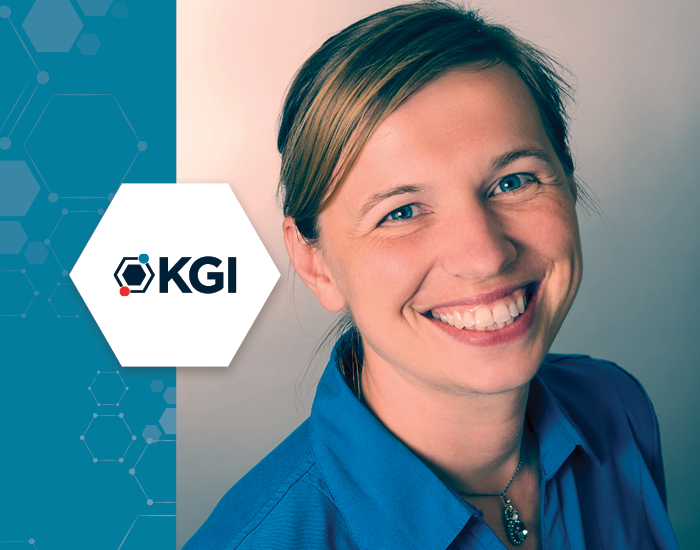CLAREMONT, Calif. - Students interested in medical devices have long found opportunities to learn about them at KGI. Assistant Professor Anna Hickerson has taught the Device and Diagnostic Product Development course for a decade. KGI’s Master of Business and Science program offers a concentration in medical devices and diagnostics. And KGI has presented the annual Medical Devices and Diagnostics Symposium for several years.
But now students can come to KGI for a master’s degree program fully focused on the engineering aspects of medical devices. In fall 2019, the new Master of Science in Medical Device Engineering (MSMDE) program welcomed an inaugural class of five students, which includes two graduates of KGI’s Postbaccalaureate Premedical Certificate (PPC) program. Hickerson, who proposed creating the MSMDE program and is serving as its director, projects that 20 to 25 students will eventually enroll each year.
Hickerson explains that the MSMDE program was created in response to industry needs, saying, “We talked to companies about the skill sets they need in entry-level hires. New hires can take a whole year of training to make them productive. With this program, they’ll be ready to go.”
Designed for students with STEM technology, engineering, and mathematics backgrounds, the four-semester MSMDE program prepares them to lead the invention, development, and production of cardiovascular, drug delivery, biosensor, and assistive devices. The program’s coursework addresses the complete medical device product life cycle, starting with identifying user needs, and incorporates engineering-focused topics such as computer-aided design, manufacturing methods, and quality control.
Like those in other KGI master’s degree programs, MSMDE students will complete a capstone Team Master’s Project (TMP) to gain industry experience. However, their roles will be directly related to the engineering of medical devices.
Hickerson notes, “The structure is the same as our other TMPs, but the projects will have a need for their specific skills. They may collaborate with students from another KGI program, but their work will involve building devices, creating manufacturing plans, or testing prototypes.”
She points to the opportunity to obtain clinical experience as another of the new program’s distinguishing features. To better understand the needs of people who use medical devices, MSMDE students will shadow healthcare providers, beginning by observing patients and occupational therapists in a hospital setting.
“What makes our program unique is the clinical experience; the manufacturing, quality, and regulatory–related coursework; and the ability to take business-oriented classes,” says Hickerson.
Students in the MSMDE program will also benefit from KGI’s brand-new medical and assistive devices lab where they can access prototyping equipment such as 3D printers and laser cutters. The lab also features spaces designed to be conducive to student collaboration on projects.
Hickerson hopes that graduates of the MSMDE program will not only be prepared to excel in engineering roles in industry, but will also share her passion for medical devices.
“A lot of populations are underserved in what is available to them,” she says. “I love the idea that these devices can help people meet their medical needs.”
—
Interested in learning more about KGI’s MSMDE program? Visit kgi.edu/msmde.
—
Hickerson also shared more about the MSMDE program with KGI President Sheldon Schuster on the KGI Podcast:
